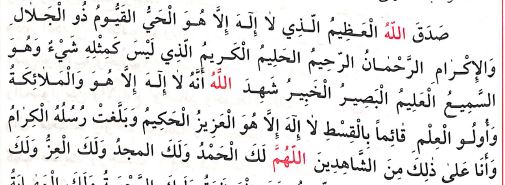![]()
The Du`ā Umm Dawud
("The Supplication of the Mother of David")
Stephen Lambden UCMerced.
In progress - 1980s ... + last updated 12-01-2017.
The ancient king David (fl. 11th -10 cent. BCE/ c. 1037?-c.961(7) BCE?) and his mother
The Behlehem (Palestine-Israel) born David referred to in this Shi`i supplication, the "The Supplication of the Mother of David", was the important Israelite king whose name in biblical Hebrew is דָּוִד (= Dāwîḏ) or דָּוִיד = ( Dāwîḏ). He is the biblical youngest son of Jesse (I Sam. 16:1, etc.). In Qur'anic Arabic he is referred to sixteen times as داوُود Dāwūd (see Q. 2:251; 4:163; 5:78; 6:84, etc). In the 11th cent BCE he was the second king of the United Kingdom of Israel and Judah. According to the synoptic Gospels of Matthew and Luke, David was a typological prefiguration of the eschatological messiah and thus an ancestor of Jesus, the Galilean founder of Christianity. According to various biblical texts, the parents of the David were Jesse and and an unamed woman who has been named Nitzevet daughter of Adael in the Babylonian Talmud (Baba Batra 91a).
In the Qur'an Dāwūd is considered al-nabi a "prophet" as well, it seems as a "sent Messenger" (al-rasul) . He is mwentioned six times in 9 sūras of the Q. The Q. twice states that God revealed the zabūr (Book, Psalter) to David (Q 4:163;17: 55). God is is said to have taught him `ilm (knowledge) and ḥikma (`wisdom’ Q. 21:78f) as well as how to make armour and soften iron (Q. 21:80; 34:10). David in the Q. is considered God’s just khalīfa on earth (Q. 38:35–38 cf. 2Sam 11-12 cf. Q. 21:78). His victory over Jālūt (Goliath) is specifically mentioned (Q. 2:251) as are a few other episodes in his unusual and ultimately pious life. Abrahamic religious traditions picture David as a type of both the eschatological messiah and his enemy the anti-messiah or Dajjāl (Syr. Deceiver).
The Arabic text of the Du`ā Umm Dawud ("The Supplication of the Mother of David") can be read in the following PDFs collected from various ms. and printed sources :
- Add
- Add
- Add
There are various UTube recitations of the Du`ā Umm Dawud including :
The text of the دعاء أمّ داود Du`a Umm Dawud
See : Imam `Ali Holy Shrine Website = http://www.imamali-a.com/?part=2100.
Pdf. based on this text =
دعاء أمّ داود

Translation Stephen Lambden
God, the One Mighty, confirmeth that He is indeed the the One Who, no God is there except Him, the Living One (al-hayy), the Self-Subsisting (al-qayyum), the Possessor of Glory and Nobility (dhu'l-jalal wa'l-akram), the Merciful (al-rahman), the Compassionate (al-rahim), the Mild One (al-halim), the Noble (al-karim), like unto Whom there is no single thing for He is the Hearer (al-sami`), the All-Knowing (al-`alim), the Insightful (al-basir), the Knowing (al-khabir). God beareth witness that He, no God is there except Him. The angels and those possessed of perspicacity (`ulu al-`ilm) are upstanding with equity (bi'l-qist) regarding the fact that there is no God except Him, the Mighty (al-`aziz), the Wise One (al-hakim). Such is affirmed by His Noble Messengers (al-rusul) and we do also do bear witness thereto.
- A prophetological prayer extract attributed to his mother (umm Dāwūd) in the Du`a Umm Dawud :
O my God! Blessings be upon [1] Hābīl (Abel), [2] Shīth (Seth), [3] Idrīs (Enoch), [4] Nūḥ (Noah), [5] Hūd [6 ] Ṣalīḥ [7] Ibrāhīm (Abraham), [8] Ismā’īl (Ishmael) and [9] Isḥāq (Isaac) [10] Ya`qūb ( Jacob), [11] Yūsuf (Joseph), [12] and the tribes [of Israel] (al-asbāt) [13] Lūṭ (Lot), [14] Shu`ayb, [15] `Ayyūb (Job), [16] Mūsā (Moses), [17] Hārūn (Aaron), [18] Joshua, [19] Mīshā (Mūshā) [2nd] Moses, son of Manasseh), [20] Khiḍr, [21] Dhū‑l-Qarnayn ("Alexander the Great”+) [22] Yūnūs (Jonah), [23] llyās (Elijah), [24] Iyasu` [al-Yasa` b. Akhṭūb] (Elias), [25] Dhu'l-Kifl, [26] Tālūṭ (Goliath), [27] Dā’wūd (David), [28] Sulaymān (Solomon), [29] Zakā’riyya (Zachariah), [30] Yaḥyā (John [the Baptist]), [31] T-w-r-kh (Torakh = Turk?) [32] Mattā (Matthew), [33] Irmīyā (Jeremiah) [34] Hayaqoq (Habbakuk), [35] Danyāl (Daniel ) [36] `Azīz ("Mighty") [37] `Īsā’ (Jesus), [38] Shimūn (Simon), [39] Jirjīs (St. George) [40] the Disciples/Apostles [of Jesus] (al-ḥawāriyyūn), [41] the successors' [`Followers' of Jesus] (al-attibã`), [42] Khalid [b Sinan]), [43] Hanzalah and [44] Luqman“ (as cited in Majlisī, Biḥār 2 11:59).
This prophtological supplication is among very many devotional pieces which are attributed to pre‑Islamic figures in Shī`ī devotional and related compilatiions. It will be seen that this lengthy prophetological beatitude listis over forty messengers and related figures in a loose and sometimes eccentric chronological order. Islamic devotion to the Israelite and related prophets, largely unmentionedin the Qur’ān, would seem to be implied here.
